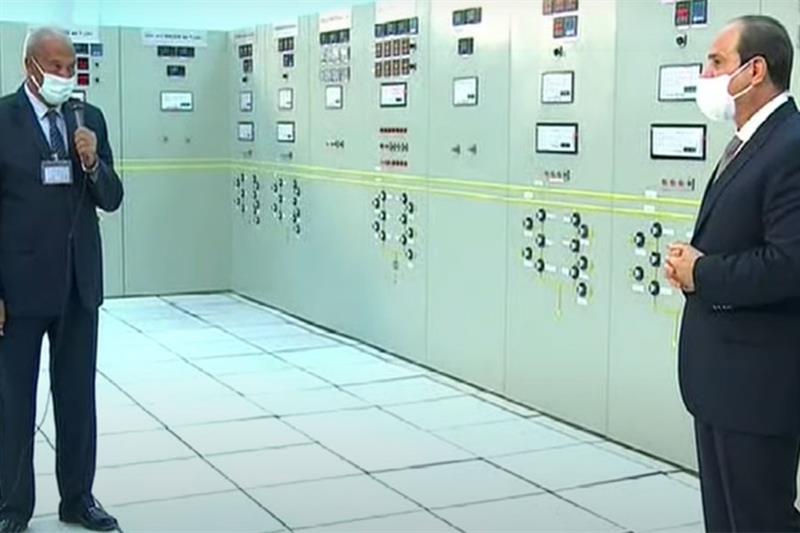
A still image of the President Abdel-Fattah El-Sisi listening to the brief about Benban solar power complex on Monday 27 December, 2021. Photo courtesy of Egyptian Presidential YouTube page.
“We aim to place Egypt on the level of developed countries in the generation of electric power and renewable energy,” El-Sisi said as he inspected the Benban Solar Power Park in Aswan in Upper Egypt, which is set to be one of the world’s largest solar power parks in the world upon completion, and inaugurated several electric power projects in the south of the country.
The president highlighted during his inspection of the massive project the importance of electricity linkage projects with neighboring countries, adding that that “states which are not ready for such grids will miss out on such a key development in the energy field."
El-Sisi explained that the power crisis that crippled the country in 2013 and 2014 left the government no “other choice” but to immediately allocate a massive $2 billion to solve the intense power shortages.
The president highlighted that Egypt succeeded in overcoming its own power crisis when some other states failed to solve theirs.
Egypt has dealt with the power crisis as "a national security issue," he added.
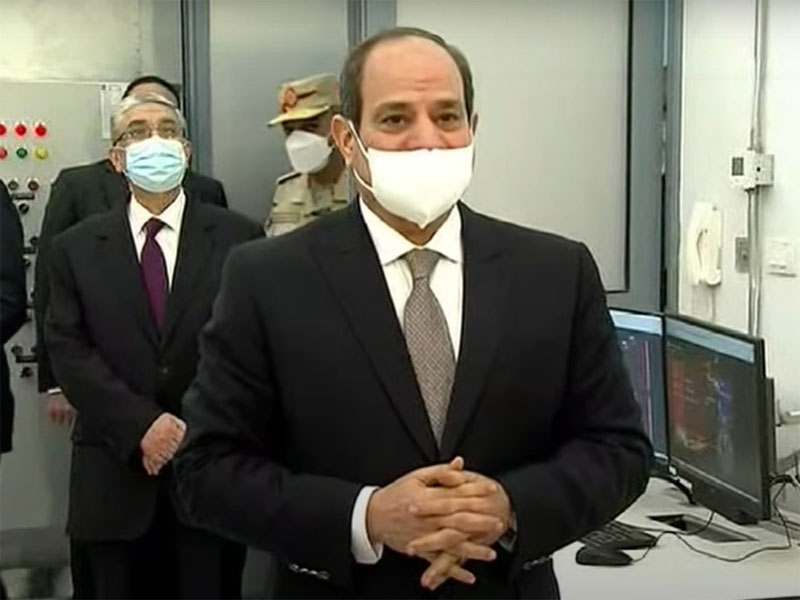
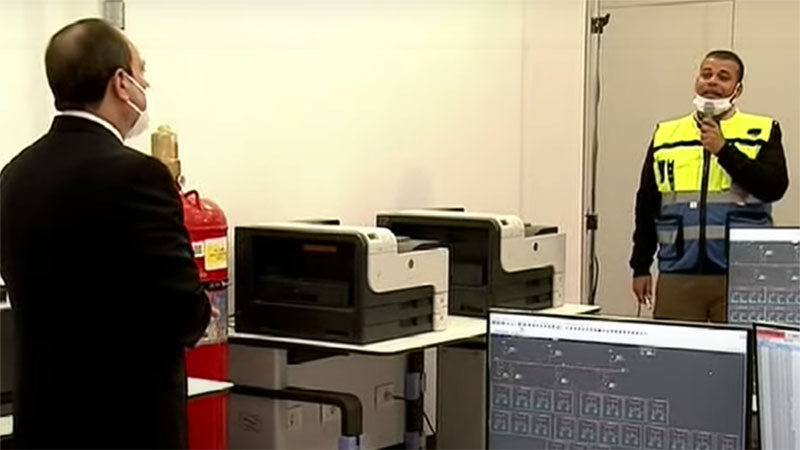
El-Sisi stressed that data related to developments achieved in the energy field in the country in the past several years should be made accessible to the public in order for people to appreciate the scope of achievements.
The president said that people who have been complaining of high electricity prices need to understand that this is due to higher production costs.
“It’s a matter of being able to collect the costs [of producing electricity] from citizens. If the state isn’t able to collect it, then it will have to pay for the difference when the state already shoulders considerable burdens,” El-Sisi said.
In July of this year, Egypt raised electricity prices for residential units by between eight and 26 percent depending based on consumption brackets as part of a five-year energy subsidies' phasing-out plan that started in 2015, which is part of a wider economic reform programme.
However, following the re-pricing of the Egyptian pound in late 2016, the government postponed the completion of the plan to the end of 2021.
The $4 billion massive Benban Solar Power Park was launched in 2019 and will generate 1.8 GW via 32 power plants operated by various companies when completed.
The first phase of the project was connected to the country's national electricity grid in December of that year.
Minister of Electricity and Renewable Energy Mohamed Shaker presented at the event on the country's accomplishments in the past several years in establishing multiple state-of-the-arts new power plants in Upper Egypt and nationwide - with a focus on producing renewable energy - to end all shortages in electricity and ensure a stable supply of power to various development projects.
The electricity minister also discussed the role of the German energy giant Siemens in developing the country's electricity production capacities.
He also presented on the ongoing efforts to connect the country's electricity grid with neighbouring countries in all directions, as part of plans to make Egypt a regional power and energy hub.
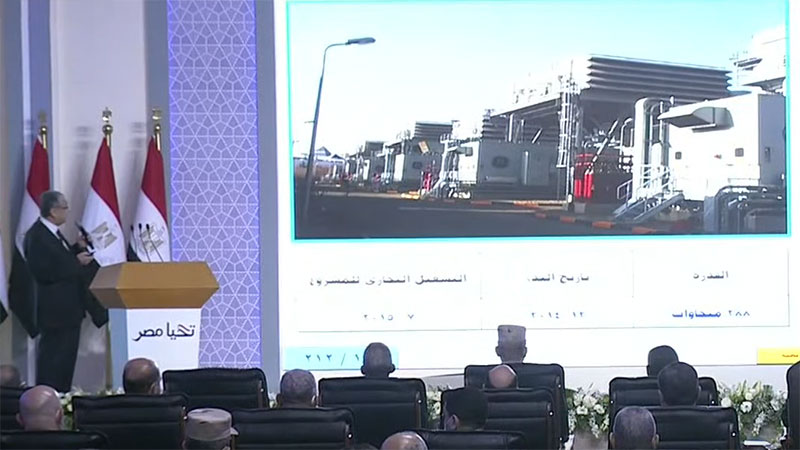
Minister Mohamed Shaker presenting on electricity projects and plans at the event
In 2015, the government allocated a 37-square-kilometer plot for the construction of Benban as the country began to tackle power shortages with an eye on producing renewable energy as part of larger plans for green transformation.
Egypt aims to produce 20 percent of its energy needs from renewable sources by 2022 and 42 percent by 2035.
Benban is built in participation with the private sector and international partners, including the International Finance Corporation (IFC), a member of the World Bank Group, as well as British and Saudi capital among others.

Benban
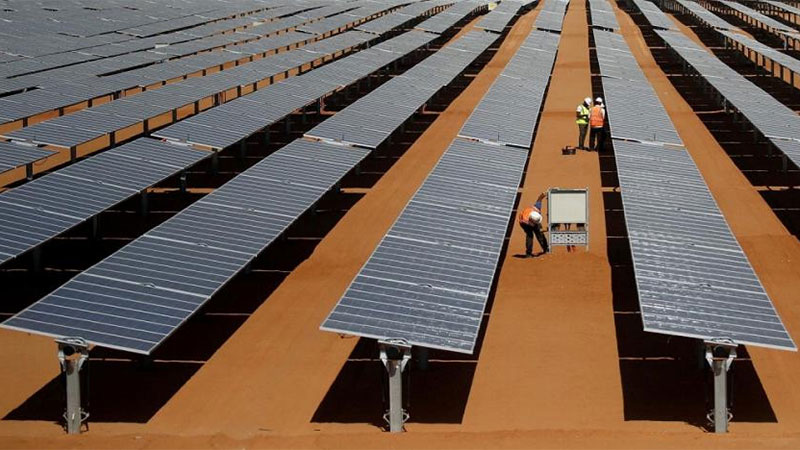
Short link: